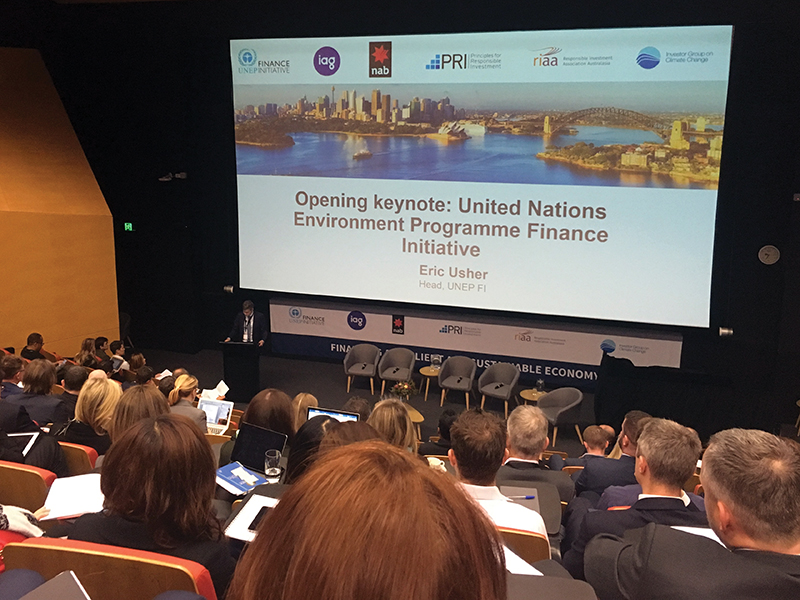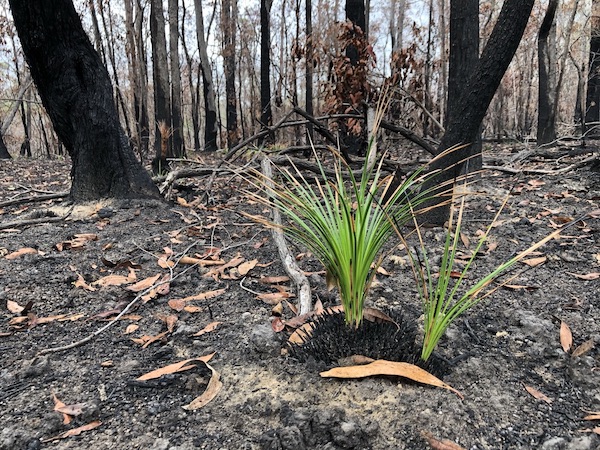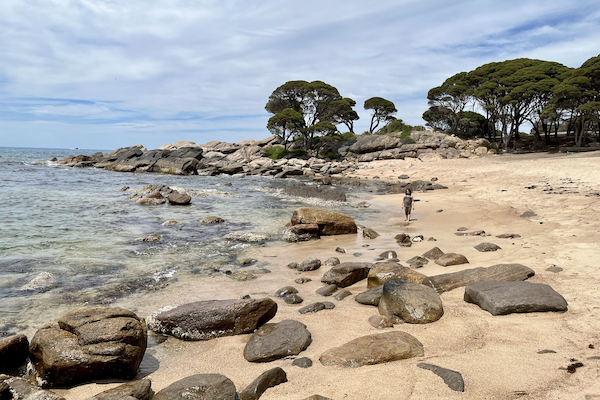Biodiversity loss is more than an environmental problem. Every person plays a role, and the causes and ramifications have economic, legal, social and cultural dimensions.
Bringing together a diverse range of experts to effectively address the drivers of biodiversity loss and to develop lasting solutions is why we have created the Melbourne Biodiversity Institute.
We can support governments, industries and communities to to create diverse solutions to diverse challenges: from nature-positive investing to geospatial solutions to monitoring and reporting on biodiversity-friendly agriculture, from nature-based solutions in cities to understanding community priorities to inspiring people through the arts.
Key challenges and expertise
Species survival
Australia is a global biodiversity hotspot. We have more species than any other developed nation. And our species are unique. Around 90% of our mammals, frogs, and bird species exist only here. Our species are integral to our identity and cultures.
Emperor penguins are facing extinction, the Victorian grassland earless dragon is hanging on in a couple of rocky outcrops and life-support in a zoo, and 2000 other species and ecosystems are listed as at risk of extinction on the Australian Government’s endangered species list. Globally, we are in the Anthropocene extinction event, and nowhere on earth is it playing out more dramatically than here in Australia.
We are losing biodiversity faster than any other developed nation. The public care deeply and are prepared to pay to stop extinctions. As a nation we have committed to end human-mediated extinctions by 2030. But talk is cheap. We must act now, and action must be based on the best available science, expertise, Traditional Knowledge, and understanding of human behaviour
The Melbourne Biodiversity Institute will work to establish what needs to be done to secure and recover each of Australia’s 2016 threatened species and ecosystems by drawing together threatened species science, economics, social science, and First Nations expertise and authority. We will work actively with partners to address the critical, existential challenge of biodiversity loss.


Nature positive transitions
Biodiversity loss represents an existential threat to society. The International Platform on Biodiversity and Ecosystem Services assesses that half of our global economy is directly dependent on nature. Human lives and wellbeing are at stake, with the poorest and most vulnerable hit first and hardest. Across all sectors, international and domestic environmental policies, laws and strategies are evolving to support the global vision of ‘living in harmony with nature’ and transitioning to a ‘nature-positive’ economy. Unlike previous approaches to halting nature loss, the role of the private sector is now being emphasised in driving transformation toward becoming nature-positive. Leading civil society organisations have set out a “Global Goal for Nature” of securing a nature positive future by 2030, and remaining within our planetary boundaries.
Achieving the goals will require a clear departure current trajectories for a sustainable transformative approach across sectors, applying actionable knowledge for the transition. Australia's research community is poised to take a world-leading role in developing this knowledge, for a number of reasons. Australia is a megadiverse country equalling other biodiversity hotspots in the global South, yet also encompassing large areas where highly developed human land use strategies need to be combined with biodiversity conservation, as in most of the global North. Thus, strategies developed in Australia can serve as role model for the entire planet.
MBI is drawing together the interdisciplinary expertise required to map a pathway to becoming a nature positive society, including navigating the rapid transitions needed to reach nature positive global goals.
Business and biodiversity
Biodiversity underpins all aspects of our prosperity, health and culture. Business and industry groups around the world are identifying biodiversity as crucial to accessing markets, meeting consumer expectations and to the continued flourishing of industries dependent on biodiversity and natural capital. The World Economic Forum rates biodiversity loss as among the top 5 risks to the global economy. Initiatives like the Taskforce on Nature-related Financial Disclosures (TNFD) and voluntary bodies like Business for Nature are championing the integration of biodiversity and natural capital into core business decision-making. However, a lack of rigorous, business-ready guidance and motivating examples are creating significant barriers to change.
The Melbourne Biodiversity Institute is poised to undertake action-research with partners from finance and industry, to map and implement pathways for businesses to become nature-positive, create tools and approaches to achieve, measure and demonstrate positive biodiversity outcomes, and demonstrating their use in motivating case studies across sectors.


Biodiversity and climate change
The climate and biodiversity crises are twin challenges of our time. Addressing these together can deliver enormous benefits while helping us avoid decisions that deepen one crisis while alleviating the other. Climate change is a growing driver of biodiversity loss, with extreme events and changes in temperature and rainfall pushing at-risk species and ecosystems to the brink. At the same time, protecting and restoring our biodiverse systems can contribute significantly to climate action. It can reduce emissions, help sequester carbon, support adaptation and reduce disaster risks and consequences.
Working with partners across Australia and our region, and in collaboration with Melbourne Climate Futures, Melbourne Centre for Cities, Melbourne Energy Institute and the Indigenous Knowledge Institute, we work to understand and address climate risks to our species and ecosystems. We codesign effective nature-based, ecosystem and landscape-level climate solutions, create policy and business tools for joint climate and biodiversity decision-making, and support integrated place-based planning for a rapid transition to net zero.
Connecting with the living world
For millennia across cultures, nature has inspired us: with art, music, spirituality, connection, learning, and community. Even today, in an urbanised world where biodiversity is in decline, access to biodiverse natural systems has significant benefits for our wellbeing, health, learning and inspiration. But our contemporary world has also created disconnections and sense of loss.
Through philosophy, music, art, education, science, design, communication, and citizen science, working with partners and communities,, and guided by and supporting First Peoples’ connections with Country, our Institute is seeking to understand, create and renew connections between people and the natural world of which we are a part.

Images: Janna Dielenberg, Nicolas Rakotopare, Rachel Morgain and Madeline Taylor.